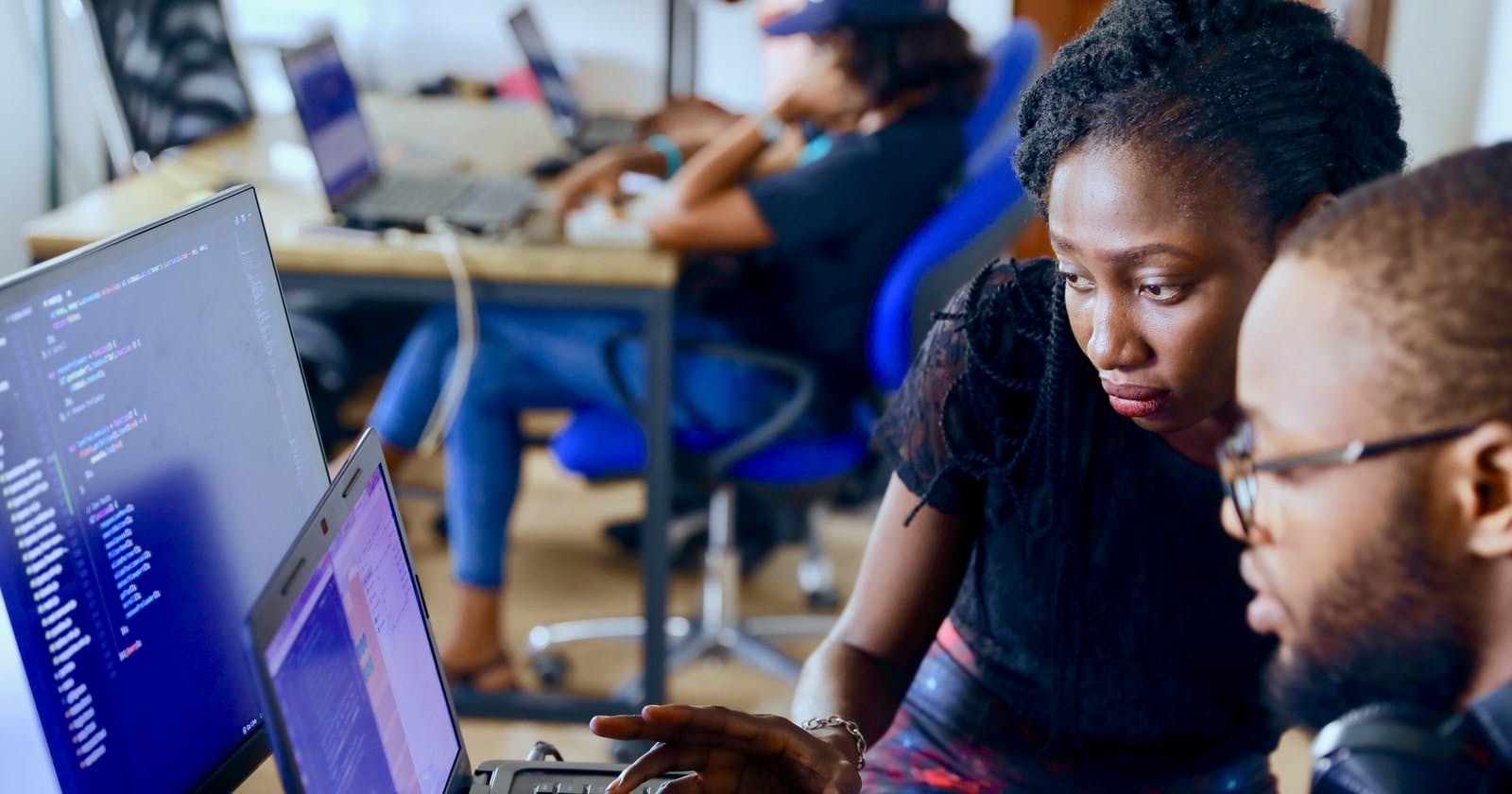
Photo by Mars Sector-6 on Unsplash
How I made the most out of my coding bootcamp ?
5 things I wish I knew before the start.
My coding bootcamp at Wild Code School ended last february after 5 months of intense work, and even if there is still so much to learn, I think starting it was one of the best decisions I ever made. During the course if it, I found out some technics to make the most out of those 5 months, and I wanted to share with you those insights.
Trust the process
When you choose this bootcamp, I suppose you went through some kind of review about its quality, the teacher's qualifications, student satisfaction, first job landing, and so on. You must then have chosen the best possible program according to your profile, objectives, and financial capacities.
Then you can assume that the process works for a majority of people and that it may very well work with you. Every learning process comes with its flaws but in the end, if you stick to it and trust the people from the school, you have all the chances to come out successful from this experience.
When I was studying, I felt sometimes lost and doubtful about whether I could or not become a software developer. Every time I felt like that, I remember the messages I had with an alumnus that was a newbie like me, with no coding experience like me, and who successfully landed a job shortly after the bootcamp. That encouraged me to rely on the school process.
When you learn something new for you, it might be hard sometimes to be self-confident with your capacities, but you can put your trust in the tested learning process to keep moving on in moments of doubts (and there will be some for sure). So stick to the courses, the exercises, the projects, and you will be fine. Of course, you could be more than fine.
Do some extra homework
If you can manage the time and have the will, I can’t encourage you enough to do some extra work in addition to the classical program.
When I say time, I am not encouraging you to shorten your nights and go sleepless, I even think this is a terrible idea, as your brain needs rest to digest all the new things you learned through the day.
I talk about starting your workday one hour earlier and/or ending it one hour after the last course. It’s already a fair amount of time to do some extra work. This homework can be very diverse:
Training on algorithms and coding challenges on Codewars.
Remake what you have learned the week before on a small project that can be done in a week. Not something to add to your portfolio, but to confirm that you understood the concepts you were taught. Following some short tutorials can help get started but try to do at least some parts yourself, it will help you memorize it. Examples: make a form that sends back a confirmation, make an API request, and display data…
If you want to practice frontend, I can’t recommend enough frontendmentor.com. It gives you all you need to start a cloning project asap, for all levels.
You get it, the goal here is not to build your portfolio (not yet) or showcase your work but to practice and reinforce your learning. Try different types of exercises, tutorials, and projects to find the ones that suit you the best.
I think that doing small projects and exercises during the bootcamp helped me get through it without feeling too overwhelmed. I kept my evenings and weekends free to relax and enjoy my friends and family, but I added one hour or two each day to reinforce my knowledge and practice.
Look back once in a while
At some point during the session, I remember thinking that I wasn’t going to make it, there was too much to learn and I was under the impression that I wasn’t making much progress. Well, I learn soon after that this feeling was normal and that every student in the course felt the same way at least once.
Whether it last 3, 4, or 6 months, a bootcamp can be exhausting, and your self-confidence can be put to the test pretty seriously by all the new knowledge you have to learn.
At the end of every week, take some time by yourself or with your fellow students to look back at all the stuff you have learned and accomplished since the beginning of the course.
Some say that a coding bootcamp is like a sprint but I prefer to see it as a marathon. To make it to the end, you need to adapt the pace to your mental and physical status, and you must enjoy the breaks. So from time to time, take a notebook and list all the things you learned through the course. You don’t need to master them to write them down, only to have been able to use them once or twice.
Help and explain
If you have the chance I had, you will be guided by great teachers that not only are technically skilled but who will also guide you along the way and until the end of the bootcamp.
But teachers cannot be with each student all the time, and mutual help between students will be key for the class to progress all together. If a student needs help on a subject that you understand at least a little, I strongly encourage you to try and explain him.
Teaching other people is one of the best ways to reinforce your knowledge, as it forces you to explain it with your own words and make this concept your own.
Every time you have the chance to teach, go on! Some students will be too shy or won’t dare to ask for help. So if you feel confident enough, offer to explain to whoever needs it, and don’t worry, no one will expect you to be as good as the class teacher but they will appreciate your assistance.
Connect with other students
The day I write those lines, it has been 3 months since my coding bootcamp ended. What’s left of it now?
The knowledge? It is now digested and well surpassed thanks to my first weeks as a junior developer in the company where I work.
The projects I built? Well, that goes with the knowledge, as my competencies are evolving, I am planning to start new projects I will try to build thanks to these fresh new abilities. Not that I am not proud of the group work we accomplish, I am, truly. But I am not the developer I was at the end of the program, and I want to showcase what I learned to future recruiters.
What stayed with me most after this 5-month journey are the people I met along the ride. Some are my friends now and we discuss almost every day our successes, our struggles, our hesitations… These connections are truly precious and they make me feel much less lonely in the aftermath of the bootcamp. We support each other in every step and this is so precious.
So, even if there are tensions and not everyone can be friends, try to be open to new friendships and keep an open heart to your co-students.
A coding bootcamp is a professional goal but it is also a human adventure and I encourage you to enjoy it for this part as well. It will make your days sweeter if you attend your courses with some friends.
Wrapping Up
To sum it up, here are my pieces of advice to help you make the most out of your bootcamp:
You choose that bootcamp for a reason, so trust the school and the process that helped numbers of students get a first job as software engineer.
Do some extra work on small, easily measurable exercises/projects to reinforce what you learned during the week. Do push it far through the night, you need to rest and stay fresh.
From time to time, look at all the work you've done since the beginning and congrtaulate yourself.
If you understand a concept that other students don’t, offer your help, it’s a great way to learn. And if you are in need, ask for help, others will be happy to teach you.
Don’t just focus on learning, but socialize also and start to build your first connections in this new industry.
I hope you enjoyed this article. My name is Paul, and I am a Front-End Software Engineer. For more articles like that, you can follow me on Twitter.
See you next time!

